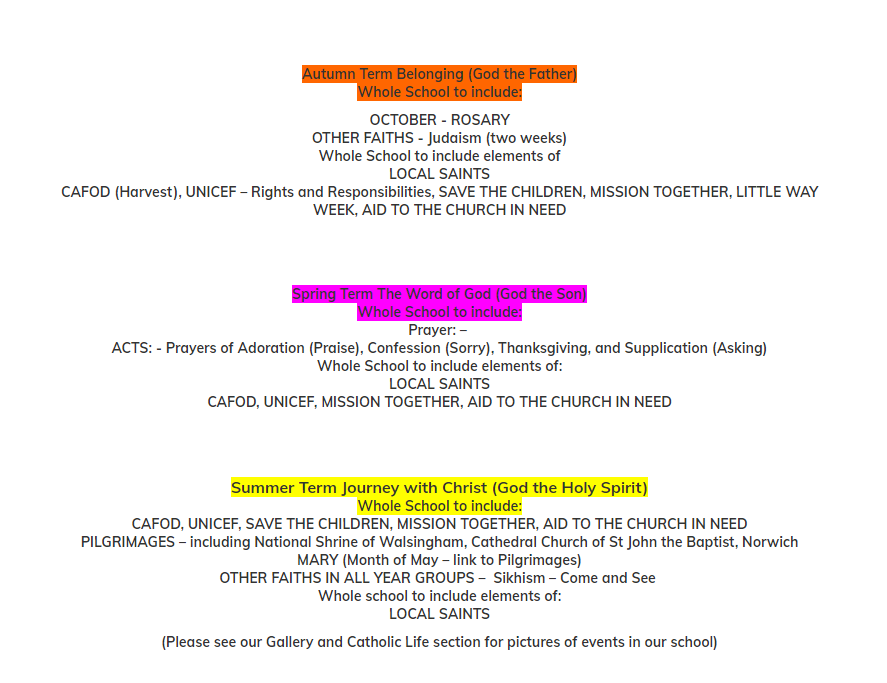Religious Education
We aim to create an environment where children are taught by example to grow as kind, helpful, happy, hard working and caring people; putting Jesus first, others next and themselves last, showing tolerance amongst themselves and towards others. As a Catholic school, we seek to develop an ethos whereby the spiritual, moral, social and cultural needs of all within the school community are supported.
Religious Education permeates throughout our whole curriculum; it is not exclusive to timetabled RE lessons. The spiritual, moral, social and cultural development of each child is addressed through all aspects of the curriculum as well as through the various day-to-day situations and opportunities that arise.
Formal RE is delivered through the scheme The Way the Truth and the Life, which is followed as recommended by our Diocese of East Anglia.
The Way the Truth and the Life scheme is implemented from Nursery through to Year 6. Each year is split into 6 topics, one per half-term and is organised to coincide with major events in the liturgical year. Each year group studies a different topic but with common themes that are revisited each year. As mixed year groups we follow a cycle A and B approach.
Collective Worship and Prayer is a time during the day when children gather together, listen to and reflect on a Gospel reading. They are given the opportunity to lead and respond with their own choice of readings, hymns and prayers.
Suitable opportunities are provided for all children by matching the challenge of the task to the ability and experience of the child. We recognise that there are pupils of widely different abilities in all classes and we use a variety of methods to ensure suitable learning opportunities for all pupils.
We endeavour to work closely with other schools, especially those within our Trust, to share outstanding practice and therefore ensure our children reach their full potential.


